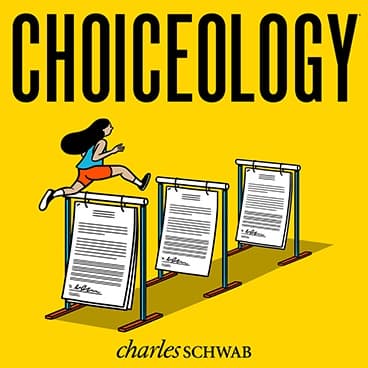A Sticky Situation: With Guests Richard Thaler, Wendy Wood & Susan Budowski
Filling out an overly complicated form or waiting on hold for hours to speak with a customer service rep is a frustrating experience. And sometimes it seems like the process itself is designed to be difficult.
In this episode of Choiceology with Katy Milkman, we look at how friction––time, distance, complexity, or anything that gets in the way of your goals—can contribute to what Nobel Prize–winning economist Richard Thaler calls "sludge."
A young couple walks into a theme park and they are offered a gift card. The only catch is that they have to watch a 90-minute presentation about timeshares. By the end of the presentation, they are the owners of a timeshare in the timeshare capital of the world, Orlando, Florida. Getting into a timeshare contract was easy, but getting out of it turned out to be much more of a grind.
Susan Budowski tells the story of how her clients got out of a sticky situation, and she explains how many companies make it simple and quick to buy a timeshare but difficult and time-consuming to sell or get out of those contracts.
Susan Budowski is an attorney in Florida and Maryland who specializes in resolving timeshare matters.
Next, Katy speaks with Wendy Wood about her research on how people can leverage friction to help build positive habits and diminish negative ones.
You can read more in her book Good Habits, Bad Habits: The Science of Making Positive Changes That Stick.
Wendy Wood is the Emerita Provost Professor of Psychology and Business at Dornsife College at the University of Southern California.
Then, Katy speaks with Richard Thaler about how sludge makes it difficult for people to achieve their goals and discusses several ways we can fight sludge in public policy and in our everyday lives.
Richard Thaler is a Nobel Prize–winning economist and Charles R. Walgreen Distinguished Service Professor of Behavioral Science and Economics at the University of Chicago’s Booth School of Business. He is also the co-author of Nudge.
If you enjoy the show, please leave a rating or review on Apple Podcasts.
Learn more about behavioral finance.
Explore more topics
The comments, views, and opinions expressed in the presentation are those of the speakers and do not necessarily represent the views of Charles Schwab.
Data contained herein from third party providers is obtained from what are considered reliable source. However, its accuracy, completeness or reliability cannot be guaranteed and Charles Schwab & Co. expressly disclaims any liability, including incidental or consequential damages, arising from errors or omissions in this publication.
All corporate names and market data shown above are for illustrative purposes only and are not a recommendation, offer to sell, or a solicitation of an offer to buy any security. Supporting documentation for any claims or statistical information is available upon request.
Investing involves risk including loss of principal.
The book How to Change: The Science of Getting from Where You Are to Where You Want to Be is not affiliated with, sponsored by, or endorsed by Charles Schwab & Co., Inc. (CS&Co.). Charles Schwab & Co., Inc. (CS&Co.) has not reviewed the book and makes no representations about its content.
Apple, the Apple logo, iPad, iPhone, and Apple Podcasts are trademarks of Apple Inc., registered in the U.S. and other countries. App Store is a service mark of Apple Inc.
Google Podcasts and the Google Podcasts logo are trademarks of Google LLC.
Spotify and the Spotify logo are registered trademarks of Spotify AB.



